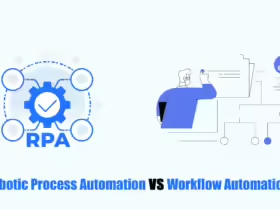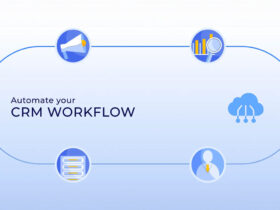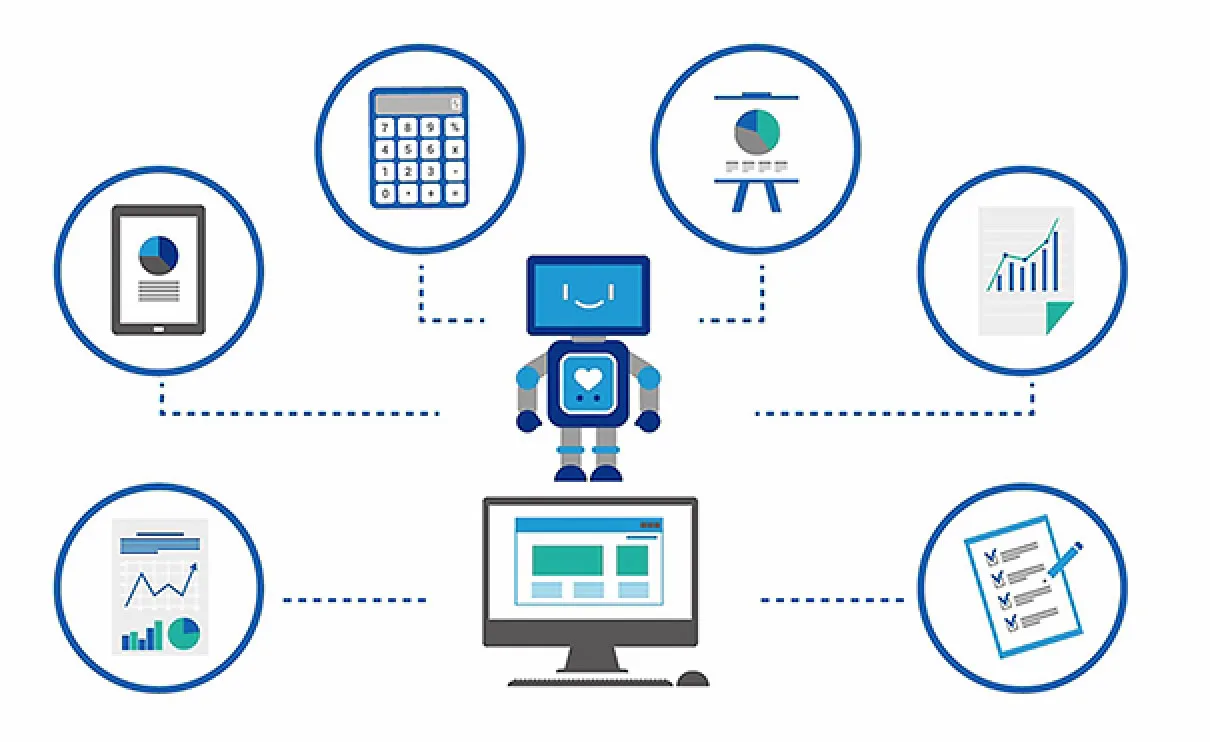No matter what job you have, being careful and organized can help you succeed. Making good choices when handling tasks and checking your work helps you meet expectations and overcome problems.
If you often make mistakes, it’s good to try a new approach and learn how to avoid common errors. This article will give you examples of careless mistakes and show you how to reduce errors and increase quality of work. Let’s explore!
Examples of Errors at Work
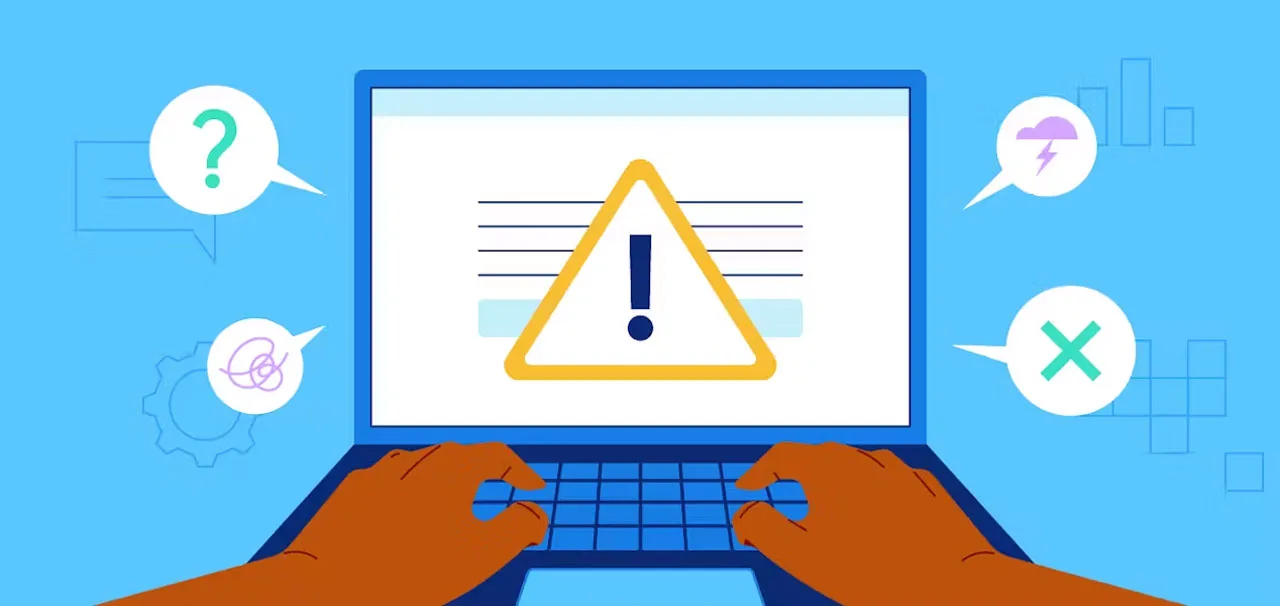
If you have lots of distractions, don’t understand what your boss wants, don’t manage your time well, or are disorganized, you might make these errors:
- Typos and grammar mistakes
- Sharing information incorrectly
- Not using time wisely
- Not understanding what you need to do
- Sending an email to the wrong person
- Making mistakes with numbers in reports
- Forgetting to do tasks
- Typing in wrong information
- Missing deadlines
What Can Lead to Errors at Work?
People make mistakes, it’s natural. But, if you know what usually causes them, you can be more careful and learn how to prevent them.
Multi-tasking
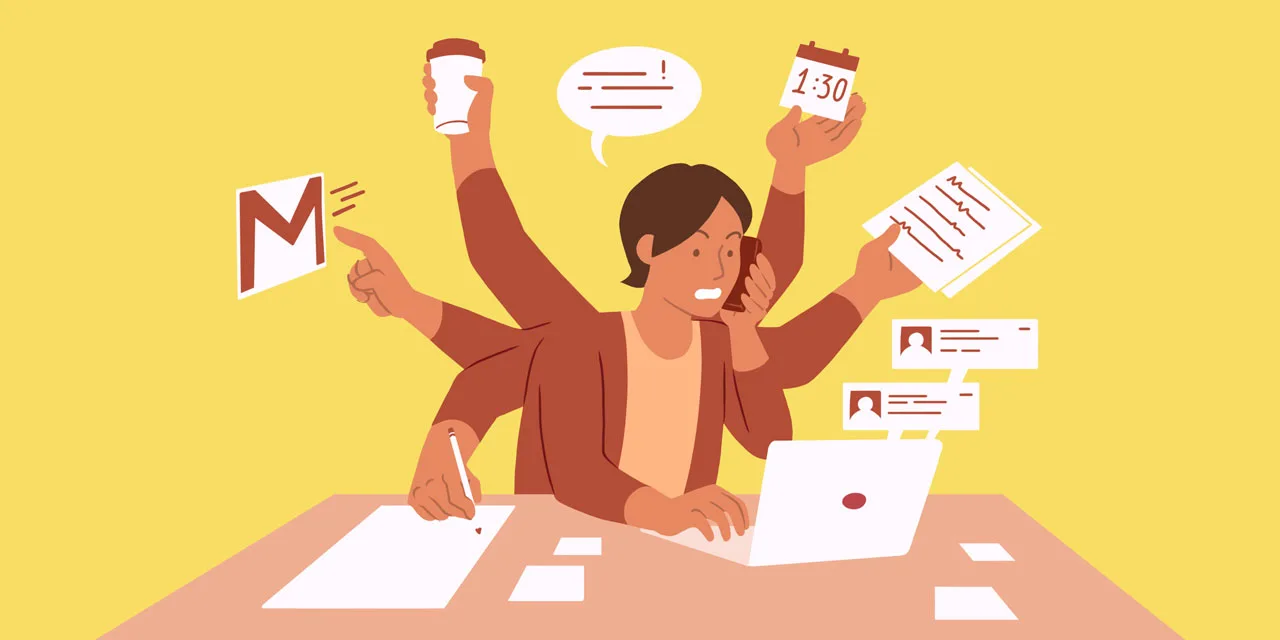
It’s inevitable that you make mistakes while trying to do too many things at once. When you jump from one task to another without completing the first one, you can lose a lot of productivity.
Constantly switching back and forth between different tasks at the same time will make you feel stressed and tired.
Tips: Encourage your employees to figure out when they’re most productive during the day and focus on important or difficult tasks during those times.
Stress
Stress is always one of the main reasons why you make mistakes at work. Stress makes it harder to think clearly, especially when creativity is needed. Plus, stress can cause you physical problems like high blood pressure, headaches, and muscle tension.
You can help your employees manage stress in several ways, like:
- Training your managers to see signs of stress
- Encouraging employees to ask for help when they’re overwhelmed, and be ready to offer support
- Creating set times when there are no meetings so people can focus on important tasks
- Helping employees figure out when they work best and let them create a schedule that suits them
These actions can help reduce stress and improve employee efficiency and accuracy at work.
Fatigue
Not getting enough sleep is another big reason people make mistakes. This can happen because of working too much or staying up late to do things you couldn’t do during the day.
Being tired can slow you down, make it harder to think, cause you to forget things, make you less aware, and make it harder to coordinate your movements.
Tips: Tell your employees to use their vacation days and take breaks throughout the day.
Lack of training
Not giving employees the right training also leads to mistakes.
Often, employees who aren’t trained properly will try their best to finish tasks, but they might miss important steps. This can cause bigger problems later if it’s not caught early.
Tips: Keep training your employees regularly—not just new ones—on areas where mistakes happen often in your company.
Negligence
Negligence, or ignoring rules on purpose, is another way mistakes happen. Unlike other mistakes that come from thinking or acting differently, this type of mistake is done on purpose.
Tips: Make sure employees understand why the rules and processes exist and tell them what will happen if they break them.
Faulty Memory
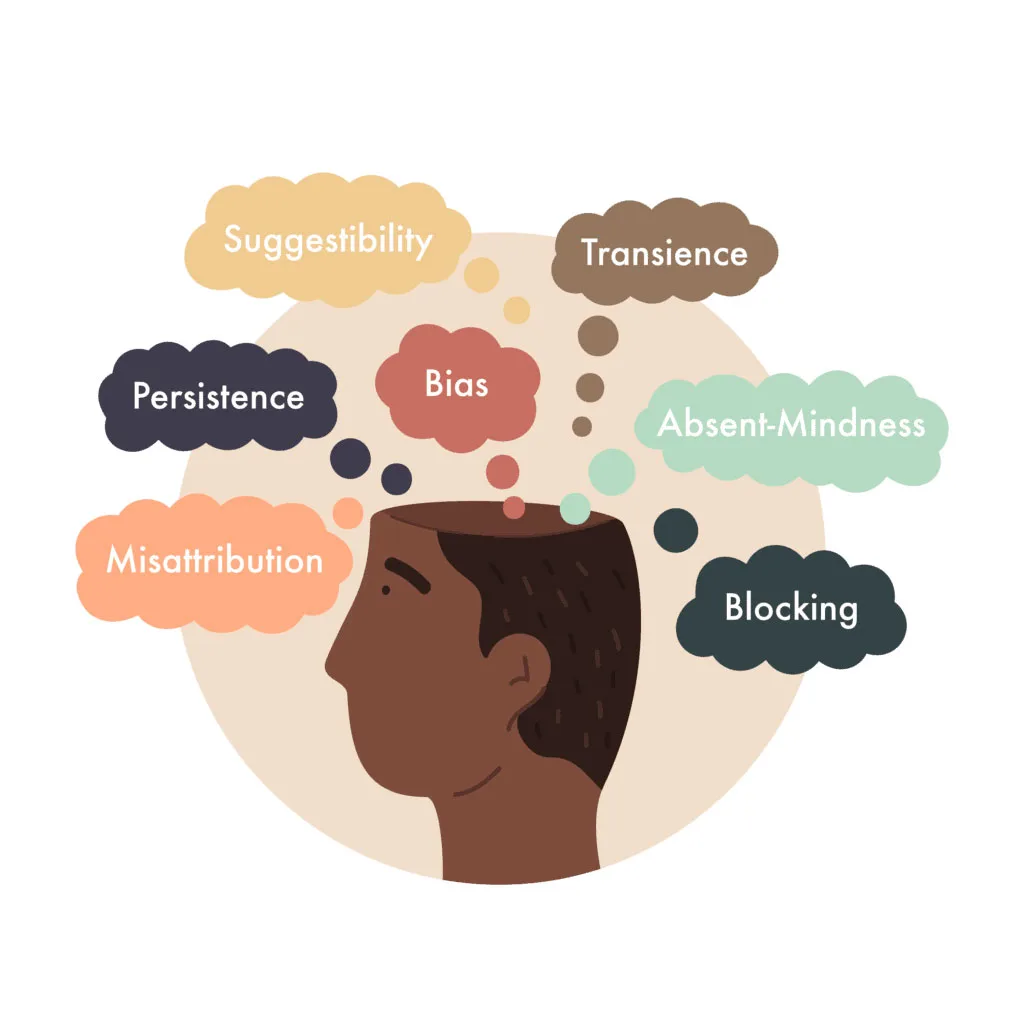
Forgetting things can cause bad choices and lead to mistakes. For example, if someone relies on their memory to complete a task, they might forget a step or do them in the wrong order. This is really dangerous in healthcare, where mistakes can almost hurt a patient or even actually hurt them.
Tips: Give employees tools to help them remember, like checklists, automatic alerts, or tools that track if they’re following the rules. This makes sure they don’t forget any important steps when planning or doing their work.
Miscommunication
Not talking enough or not communicating clearly with teammates can also lead to mistakes. If someone doesn’t have all the information they need at the right time, they’re more likely to mess up.
To help with this, set up ways for your team to communicate better.
Tips: Give them tools or processes for organized communication, like feedback sessions, specific phrases to use for alerts, checklists, and standardized hand-offs (passing work from one person to another).
How to Reduce Errors and Increase Quality of Work?
There are a lot of ways to reduce errors and increase quality of work, become more careful with details, and make sure your work is top-notch. Here are some easy steps you can follow to avoid mistakes:
Using Task Management Tools or Checklists
Everyone forgets a step or a whole project sometimes. You can make sure this happens less by using a good old notepad to make a simple checklist and stay on top of your tasks.
If you really want to stay focused, try some digital tools or software that can send you reminders and help you move from one task to the next. Don’t let anything slip through the cracks! There are many task and project management tools that can help you with this. Check out apps like:
- RPA CLOUD
- Asana
- Basecamp
- Smartsheet
- Todoist
- Trello
Implementing Workflow Automation Software
Sometimes your projects might have a lot of steps. The more things you have to do, the easier it is to forget something. It gets even trickier when you’re working with others.
Using tools to automate processes, like RPA CLOUD, can really help reduce mistakes when you’re dealing with complex projects. By creating a clear workflow and tracking each step, you can see the progress and make sure that nothing moves on to the next stage until the previous steps are done. You can even add approvals at each step, so you never have to worry about missing something.
Don’t Try to Solve Multiple Tasks
Doing many things at once doesn’t always help you optimize your time, and can even be counterproductive.
You may feel like you’re getting more done, but you’re actually dividing your focus and not being productive. Even if you’re good at multitasking, your attention is still divided between multiple tasks. This causes you to miss some important mistakes in your work.
It’s better if you schedule your work daily so you can focus entirely on one task at a time. This way, you won’t have to try to reply to emails, edit blog posts, respond to messages, and answer the phone all at the same time.
Removing Distractions
The easiest way to focus on a task is to remove distractions. You might not realize it, but there are simple distractions everywhere that can affect your work and personal life.
To make fewer mistakes, try your best to get rid of distractions. This means:
- Closing or not checking social media.
- Turning off notifications on your phone.
- Turning off notifications on your computer, especially for emails and chats.
- Talking to coworkers less, unless it’s about work.
- Close your email program until it’s time to check emails.
You can also try an app like RescueTime. It helps you see your online and daily habits, so you can find what’s distracting you and stopping you from being productive.
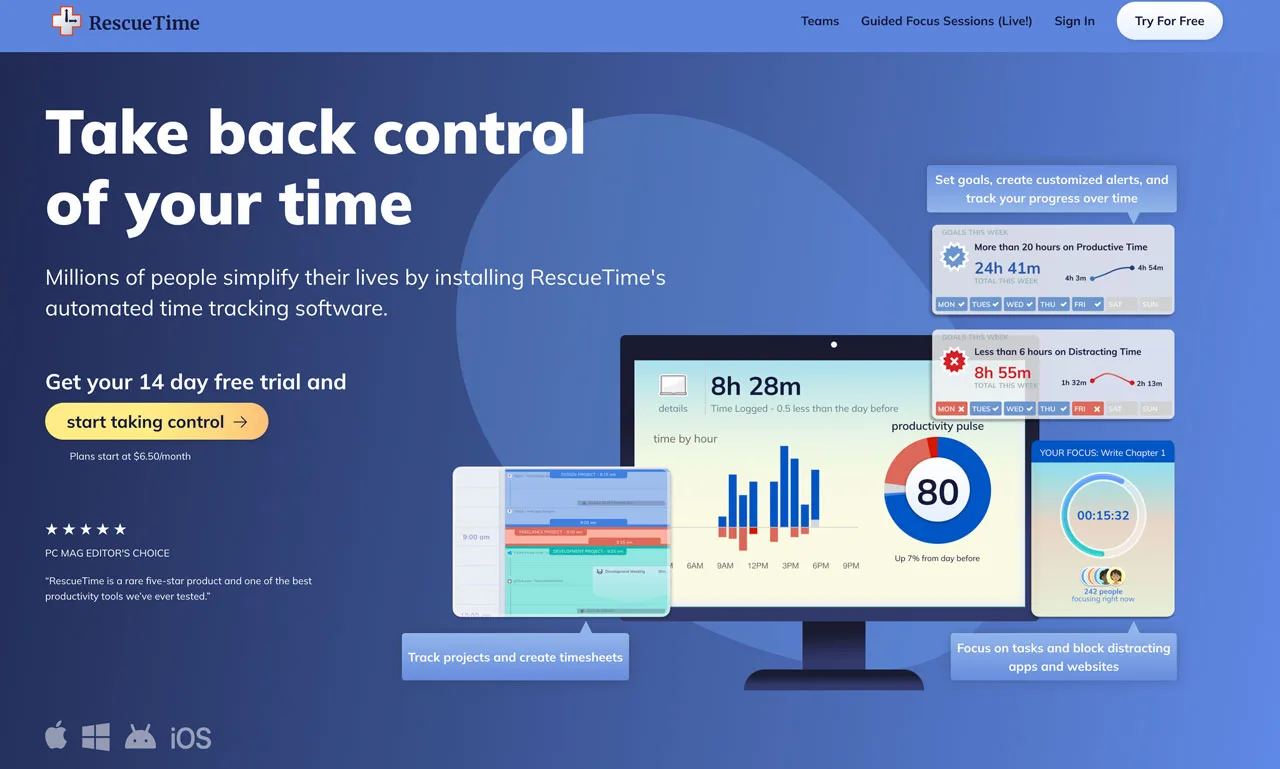
Clarifying Issues When in Doubt
We often make mistakes when we do not fully understand the nature of the job or the expectations of our superiors and customers.
Many employees, especially new employees, feel nervous and embarrassed to ask their superiors or customers about issues they are unsure or doubtful about. But it will be even more wrong if you are not 100% sure about your job but don’t ask.
Also, know who you can go to for help. Ask who to talk to if you have any questions while working on the task.
Asking questions is a good thing! It helps you learn, and most new tasks are a bit challenging and require learning something new.
Always Checking Your Work
Before you move on to the next task and say you’re done with the current one, check it over. Then check it again. And then one more time. I personally use a multi-step process to check my writing for mistakes. Even though I try my best, some errors still slip through.
Often, we miss mistakes because we’re working with tight deadlines. When we don’t have much time to check carefully, we just hope for the best and send it off. If you’ve spent a lot of time on a project, make sure you take the time to review it. Give it the attention it deserves so you can feel good about the final product, not worried about mistakes.
Taking Enough Break
Even if you do everything right, mistakes can still happen. Especially when you’re pushing yourself hard, working through lunch, and trying to meet a deadline. You won’t be useful to anyone if you’re completely exhausted by the middle of the week.
Make sure you take breaks often to give your brain a rest. You don’t need a lot of time; a few minutes every hour can keep you feeling good and going strong all day without getting burned out.
And don’t skip your main breaks, like lunch. You need food to keep your brain working and your body going through the afternoon.
Don’t Procrastinate
I know some marketers who say they work better under pressure, and they often wait until the last minute to start projects. This leaves no room for mistakes, forcing them to deliver perfect work every time, and on time.
But that’s just not possible when you’re working with the clock ticking. You’re going to rush, not do your best, and make big mistakes that affect you and others.
So, how to reduce errors and increase quality of work? Start your projects early, and plan enough time to finish each task. Most importantly, prioritize your tasks so the really important ones don’t get forgotten.



